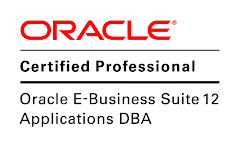From Wikipedia online Encyclopedia website as to what constitutes an
Database Administrator:
A database administrator (DBA) is a person who is responsible for the environmental aspects of a database. In general, these include:
Recoverability - Creating and testing Backups
Integrity - Verifying or helping to verify data integrity
Security - Defining and/or implementing access controls to the data
Availability - Ensuring maximum uptime
Performance - Ensuring maximum performance given budgetary constraints
Development and testing support - Helping programmers and engineers to efficiently utilize the database.
The role of a database administrator has changed according to the technology of database management systems (DBMSs) as well as the needs of the owners of the databases. For example, although logical and physical database design are traditionally the duties of a database analyst or database designer, a DBA may be tasked to perform those duties.
However, there is a real crisis with the role of DBA in the USA and world. Often a DBA is considered to be a catch all phase for anyone who works with a database. That makes the whole situation sticky and ambiguous as to how one becomes and remains employed as a DBA! Below are some interesting links to the whole confusion around DBA and Developers:
Oracle WTF view of Oracle DBA:
More about what is a DBA
The Oracle Alchemist Discussion between DBA versus Developer
I personally have been more of the traditional production operational DBA although have done some development work for clients in the past. Currently I am working on revamping the large SQL Server database and Oracle environment to replace the legacy scripts with automated Informatica, SQL, PL/SQL and T-SQL scripts and workflows. Since the developers are not only very junior level but more C++/Java guys with limited SQL experience and zero Informatica skills, the team has involved me heavily in design of the data warehouse models. Its fun and challenging. Personally I'd rather just script everything in SQL, Transact SQL and PL/SQL and say to hell with it with the overpriced and bloated POS tool called Informatica Power Center but management has already invested eh sunk a million bucks into the purchase of this tool. Funny- it costs a fortune to create a data warehouse and ETL process with these fancy shmancy tools whereas if the time and care had been spent writing clean SQL and PL/SQL code it would have saved this healthcare place a fortune!
Saturday, January 13, 2007
Subscribe to:
Post Comments (Atom)










No comments:
Post a Comment